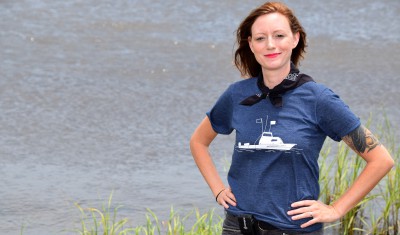
JACKSONVILLE — Earlier this month, Nicole Triplett went to the 2016 national conference of the Waterkeeper Alliance in Wilmington, and got to hear the organization’s founder, president and senior attorney, Robert F. Kennedy Jr. speak three times.
She returned to Onslow County triply inspired, and that’s good news for the White Oak and New rivers, because for the past seven months, Triplett has been the riverkeeper for the White Oak-New Riverkeeper Alliance, a Jacksonville-based environmental watchdog group that’s enjoying a rebirth.
Supporter Spotlight
“I came back with a lot of new ideas, and new energy,” said Triplett, who the group hired in October after going several years without a keeper. “I feel like we’ve made a lot of progress as an organization, but there’s a lot more we can do.”
The group was founded in 2008 and made a good name for itself, mostly behind the scenes, with such things as water quality testing in its namesake rivers and some of their tributaries.
More publicly, the organization gained acclaim for starting Operation Medicine Cabinet, a twice-a-year effort to collect and properly dispose of unwanted prescription drugs that otherwise might get into criminals’ or addicts’ hands or into rivers and streams through septic tanks and municipal sewer systems.
Medicine Cabinet, which was started by then-riverkeeper Tess Smallridge, went statewide and major corporations, such as Food Lion and Walgreens, have been big supporters, as have local police departments, which safeguard the collections and handle the disposal of the drugs according to state laws.
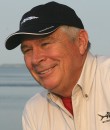
But Smallridge eventually moved to Chicago, and the organization went into a decline. It got so bad that in 2012, the group wasn’t really even involved in its signature event. Then came new blood, in the form of a new president, Dale Weston, who made rejuvenation his mission. He knew people.
Supporter Spotlight
The first thing Weston did was recruit new board of directors’ members, including April Clark, owner and operator of Second Wind Yoga and Eco Tours of Swansboro. She also knew people, and she knew how to get them involved. Her kayak customers routinely pick up trash in the water and on islands in the White Oak. It’s an integral part of the company ethos.
Clark, a terrific fundraiser, had raised money for the group through an annual New Year’s Day “polar plunge” and other events, including a recent auction at Second Wind. Clark’s arrival also signaled a crucial shift for a group that had long centered its attention on the New River near Jacksonville. It would now also focus on the White Oak River near Swansboro.
And it wasn’t all Weston did. He started planning to get a new riverkeeper. “It was something we had to do, for visibility and for effectiveness,” he said. “We didn’t have the money to do it right away, but if we were going to be successful, it was something we had to find a way to do.”
Another key was to associate with Rick Dove, a founding member of group who rose to fame in the 1990s fighting hog farms as the riverkeeper for the lower Neuse River. He’s now a senior adviser for the Waterkeeper Alliance. He also knows people.
Eventually, all the connections paid off. Support from the Waterkeeper Alliance and from Fred Stanback of Salisbury, who supports many environmental groups in the state, enabled the riverkeeper group to hire Triplett, who had interned with The Conservation Fund.
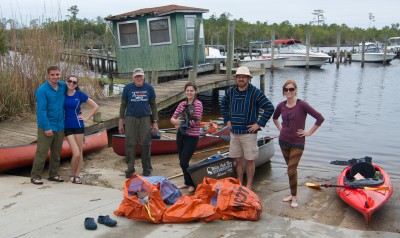
She hit the water paddling and hasn’t stopped. Wherever there’s trash in the water in the area, she’s been there, working with the Swansboro Rotary Club, for example, to organize cleanups all over Onslow County this year.
She’s also worked with Lisa Rider of Keep Onslow Beautiful on projects such as the Paddle Trash Fishing Tournament that launched from Topsail Island in May 14. Name a trashy waterway, and Triplett’s been there, or plans to go.
Triplett also has gone to meetings all over the area, establishing contacts and developing the kinds of connections that are essential to a watchdog group’s success.
She’s also been looking for new and innovative ways to attract folks to her group. For example, with the Zika virus making headlines all around the world, she’s planning an anti-mosquito campaign to tell people that trash and litter play a role in mosquito propagation. The organization is continuing its efforts to find and encourage abatement of pollution from corporate hog farms in the region and is beginning water sampling and testing efforts in the White Oak, working with the North Carolina State University’s Center for Marine Science and Technology in Morehead City. She’s also working with the White Oak River Chapter of the Izaak Walton League of America on projects in and near the NCSU-owned Hofmann Forest in Onslow and Jones counties. It’s the site of the headwaters of the White Oak and New rivers, a natural place for the group to work.
“I think we’re making a lot of progress in terms of visibility,” Triplett said earlier this month. “We’re up to 267 members, and I think we’ll have enough money to keep me on board. But we still need some more members who can be more active. There’s a lot of work to do, and that takes people who have the time and the energy.”
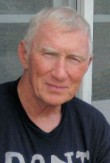
One of those new and younger and energetic members, and board members, is Doug Toltzman, an avid kayaker and outdoorsman who has connections to scores of paddlers and trail hikers. He’s a computer whiz – he makes his living doing websites – and completely redid the group’s site.
Toltzman is also the group’s secretary/treasurer, but he hopes that’s temporary.
“I want to be out on the water, picking up trash, doing stuff that makes a difference,” he said. “But I really do think we’re making progress. We’re growing. But I’m impatient. To be honest, I thought that after having a riverkeeper for six or seven months, we’d be a little ahead of where we are. But we’re getting there, we’re making progress, and I think we’ll be able to keep Nicole after this first year.”
One key, Toltzman said, will be getting Triplett “out on the water” more. To that end, he’s looking forward to seeing her, and maybe others, do more river and creek patrols in WONRA’s power boat, with the name emblazoned upon it.
“The more visible you are, the better off you are,” he said. “People need to see us out there. I think before too long we’ll have some sort of patrol schedule, so people will see us more and know who we are and what we’re doing.”
Another new board member is Tom Mattison, one of the founders of the New River Foundation, which formed in 1995 in the aftermath of the discharge of more than 25 million gallons of hog waste into the New River. The group folded last year. Mattison, a retired Marine who did two combat tours in Korea and a couple in Vietnam, is a firebrand and longtime outspoken activist who doesn’t mince words. He knows a bit about clean water, and dirty water, too; he’s been installing and inspecting septic tanks for decades. He also learned lessons from the foundation’s demise.
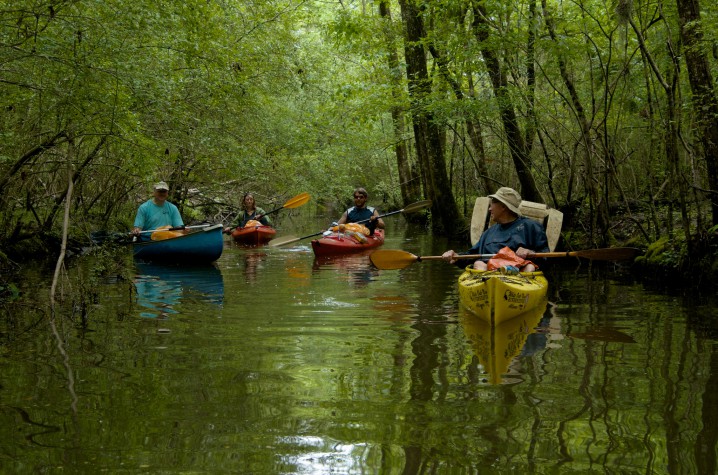
“I was very happy to get on the board at WONRA,” he said. “Nicole is doing a great job. Me, I like to stir things up a bit. I’m kind of an agitator, like a clothes washer. A washing machine doesn’t clean clothes without an agitator, and you need an agitator to clean up a river, too. I have a knack for raising hell.”
The group, he said, has great potential, but it needs to get the community more involved. To do that, “we’ve got to get more board members who are willing to work more, to associate with the Boy Scouts and the Girl Scouts, the churches, the civic organizations, everybody, even more than now,” he said.
“There’s a lot of work to do to get these rivers back where they should be, and there’s no way we can do it all ourselves,” he continued. “The community, the people, have to get involved. If they see something wrong, they’ve got to tell people. And they have to go to meetings and stand up against the polluters. It’s work, and you can’t be afraid to speak out.”
Weston also helped get Jim Simpson, one of group’s original board members, back on the board, providing more continuity. “He’s a very good board member,” Weston said. “He has a lot of knowledge.”
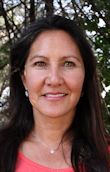
Clark, whose recent auction at Second Wind raised close to $2,500 for WONRA, is optimistic about the group’s future. “Nicole came in with a lot of good ideas, and she’s been very active, getting out in the community and talking to groups and getting out on the water and doing cleanups,” she said. “I think WONRA is getting much more visible. More people know about us, and I think that’s going to continue to improve.”
But the organization, she said, needs to work with some people and groups with which it might not, on the surface, seem likely to see eye-to-eye. “I think everybody wants our waters to be clean,” she said. “It’s the key to the economy here. Not everyone is going to agree with us on all issues all the time, but we have to look for commonality. I think we can find it on a lot of issues.”
Weston said he wants to highlight and work on state coastal and water quality issues that affect the two rivers, such as recent actions by the state General Assembly to weaken some environmental rules.
He wants the group to get involved in aquifer protection, and to engage more with local governments, as the group did with the town of Maysville after its waste treatment plant released nearly 10,000 gallons of partly untreated sewage into the White Oak in Jones County in July 2015.
He said he’s encouraging Triplett to start working harder on membership recruitment now that she knows the area and is getting to be well known in the community.
“We have to be the eyes and ears and the voice for the rivers,” he said. “We need to help restore what’s been lost because of pollution. We have to work with people to reduce storm water runoff, which is something the coastal federation does very well. There’s a lot of work to do, and we have to get the community more involved. But I think we’re on the right track.”







